Of all the qualities that are needed in the creation of a great relationship, courage or fearlessness is the one that we would put at the top of the list.
The creation of a strong foundation in any relationship requires the willingness to disarm ourselves of some of the defenses that we have learned and practiced over the years. While these defenses may have served us to prevent or minimize emotional pain, they may have inhibited our ability to experience fulfilling connections with others. Becoming non-defensive requires fearlessness, since it seems to put us at greater risk of emotional pain.
The dictionary refers to fearlessness and courage as being synonymous with each other. It defines courage as the ability to do something that frightens one; strength in the face of pain or grief. Note that there is nothing there about not having fear. It suggests, that you can only be fearless or courageous if
you have fear.
The Chinese term for courage is comprised of five characters which represent: courtesy, integrity, perseverance, self-control and indomitable spirit. Now that we've gotten straight what courage is and isn't, let's look a little more deeply into its meaning and origins. The word courage has its origin in the French word coeur, from the Latin, cor, both of which mean heart.
To be fearless, we must lead from the truth of our heart, rather from the fear in our mind. This does not negate the possible dangers that may lie in front of us, but rather that we make a conscious choice about what action can best represent our heart's current desire. It does not mean that we react recklessly but that we proceed consciously, taking responsibility for our actions.
When we feel threatened in a relationship, it takes courage to resist the temptation to become defensive and to instead become fearless. The late, great spiritual teacher Stephen Levine called this Keeping your heart open in hell.
We can't help but feel fear when we feel threatened, but we can determine how we respond. Honoring our deeper intentions rather than indulging our impulses to withdraw or attack will strengthen our courage muscle.
While there unquestionably are people to whom it would be unwise to expose our vulnerability, there are also dangers in bringing suspicion rather than curiosity and open-mindedness into our interactions. This attitude promotes rather than diminishes fear.
When our desire for something is strong, we are more likely to find the willingness to step into our fear, rather than to withdraw from the challenge of facing it. When our desire to experience something is strong and passionate and the expected rewards are high, we can commit ourselves to going forward even in the face of fear. We don't necessarily begin with a brave heart; we develop it along the way. We begin wherever we are right now and move forward one step at a time.
Find more tips like this in the Bloom's new book an End to Arguing: 101 Valuable Lessons for All Relationships.
Book Summary
Now more than ever, couples need guidance for navigating conflict wisely and skillfully. Drawing on insights from their work with couples since 1975, the Blooms offer practical tools and strategies that apply to all relationships. An End to Arguing convincingly shows how destructive conflicts can be avoided, and provides stimulus for individual and interpersonal growth. They use compelling examples from their clinical work and their own fifty-year marriage, which has had its share of challenges.
An End to Arguing doesn't just provide a way of preventing differences from turning into painful conflict; it gives the reader an insight into what qualities are inherent in argument-free relationships. The way of getting there may be simpler than you think!
You can purchase a copy of the book on Amazon, Barnes and Noble, or Bookshop.org. Be sure to also add it to your GoodReads reading list.
Their book is also part of the Women On Writing (WOW) Blog tour
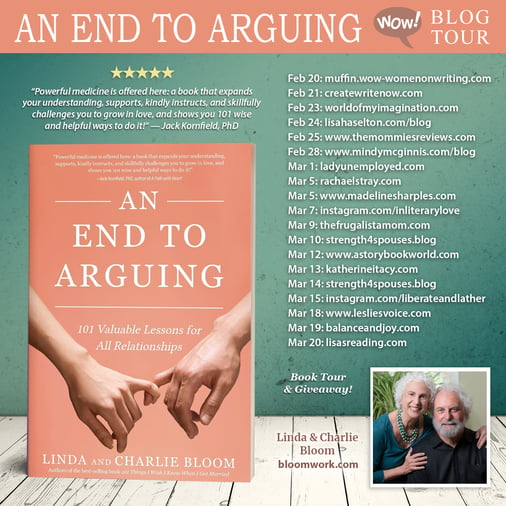
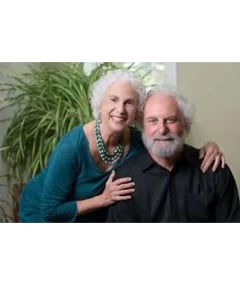 Author bio: Linda Bloom, LCSW and Charlie Bloom, MSW have been married since 1972. Trained as psychotherapists and relationship counselors, they have worked with individuals, couples, groups, and organizations since 1975 and have lectured and taught at learning institutes throughout the USA and internationally, including the Esalen Institute, the Kripalu Center for Yoga and Health, Northern California Mindfulness Institute, The California Institute for Integral Studies, and the World Health Organization. They have authored five books, including the bestseller, 101 Things I Wish I Knew When I Got Married: Simple Lessons to Make Love Last (over 100,000 sold), Secrets of Great Marriages, Happily Ever After... and 39 Other Myths about Love, That Which Doesn't Kill Us: How One Couple Became Stronger at the Broken Places, and An End to Arguing: 101 Valuable Lessons for All Relationships. They are founders and co-directors of Bloomwork, based in Santa Cruz, California.
Author bio: Linda Bloom, LCSW and Charlie Bloom, MSW have been married since 1972. Trained as psychotherapists and relationship counselors, they have worked with individuals, couples, groups, and organizations since 1975 and have lectured and taught at learning institutes throughout the USA and internationally, including the Esalen Institute, the Kripalu Center for Yoga and Health, Northern California Mindfulness Institute, The California Institute for Integral Studies, and the World Health Organization. They have authored five books, including the bestseller, 101 Things I Wish I Knew When I Got Married: Simple Lessons to Make Love Last (over 100,000 sold), Secrets of Great Marriages, Happily Ever After... and 39 Other Myths about Love, That Which Doesn't Kill Us: How One Couple Became Stronger at the Broken Places, and An End to Arguing: 101 Valuable Lessons for All Relationships. They are founders and co-directors of Bloomwork, based in Santa Cruz, California.
Visit them online:
Website: https://bloomwork.com/
Twitter: https://twitter.com/Bloomwork
LinkedIn: https://www.linkedin.com/in/lindacbloom/
Instagram: https://www.instagram.com/linda_charlie_bloom/
Journaling Power Revolution Series

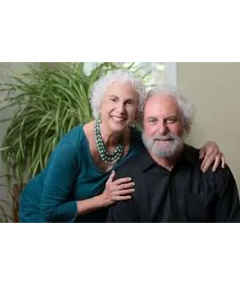
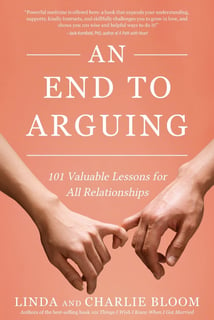
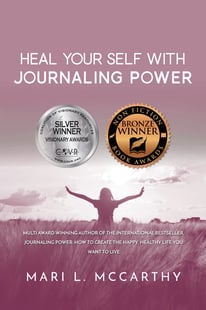

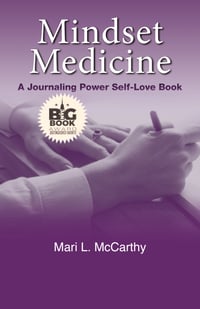
Leave Comment